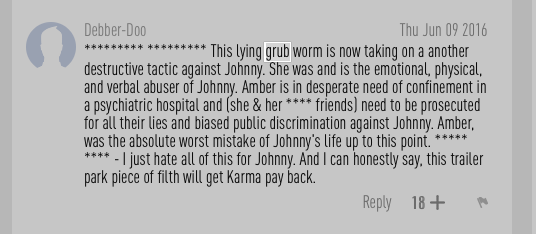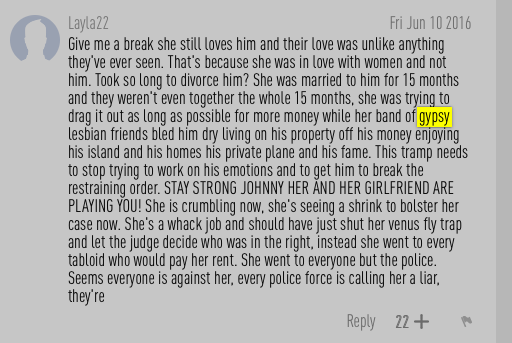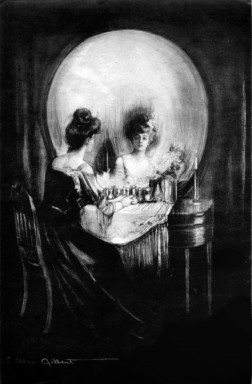Average men get away with rape. Ordinary, garden-variety males bypass penalty for beating their wives and girlfriends, too, and for sexually abusing their children. It is men’s prerogative to harm the women and children in their orbit, because in the patriarchal family women and children are men’s property, at the mercy of men’s whims. Though the law in the United States no longer defines women as men’s chattels, the underlying ideology lingers: as lord & master of the castle available to every male no matter his class – “the home” – a man may rule over the lives of his subjects. He beats his wife; he fondles his daughter: to be careless of the bodies and beings of his underlings is testament to the absoluteness of his authority over them. It’s a pleasure and a privilege: to hurt women, to hurt children. Lowly as they are relative to He Who Is Their Master he need not condescend to consider the feelings or the fates of these subordinates at all.
When an average woman comes forward publicly to announce that a man has raped her, or beaten her or that he molested her when she was small, she is disbelieved and discredited and dismissed, and she is scorned, for it is Woman’s lot to suck it up and to take her lumps in private; she has done wrong to denounce a man. People will say she made up her bogus rape story to make the man look bad or because she wanted money or attention from the man or she imagined the whole thing because she is mentally warped or if something did happen between her and the man, something sordid, it was because she was asking for it, she wanted it, she provoked him—the fault is hers. The man is stainless; it is the victimized woman who bears the taint. In popular parlance this is called “victim blaming” and it is a primary reason most women who suffer male violence do not attempt to incriminate their abusers, their reticence spawning a hushed grove within which men’s abusiveness toward women is permitted to thrive. When a man hurts a woman he trusts she will be too afraid too ashamed to tell so even the vaguest threat of stricture is void.
If unremarkable men are sheltered from repercussion when they hurt women and children by the basic protections afforded them by patriarchal culture, what happens when a remarkable man does violence to a woman or girl? It would be reasonable enough to suppose or to hope at least that the notoriety of the remarkable man might make it more difficult for him to dodge comeuppance—after all, the court of public opinion staffs a sizable jury. But more people learning that a man may have harmed a woman or a child does not equate to more people believing that he did, or caring that he did. The more widely known and well-liked a man is, the more people that know he may have hurt a woman, the less apt he is to ever face consequences. The advantage of being a man compounded with the advantage of public admiration renders him untouchable. By contrast, the victim – whoever she is – is at a serious disadvantage: she is a woman, she is less than he is. His inferior. Should she also be famous, all that her fame guarantees is that she already has plenty of people who hate her, as well-known women never fail to attract rancor (every woman in public is abhorred).
The doggedness with which patriarchal pop culture stands by its man has been on powerful display this year in the cases of three high-profile male artists who waited patiently smirking as accusations of rape, child molestation, and battery slid from the teflon of their status: Michael Gira of Swans, director Woody Allen, and actor Johnny Depp.
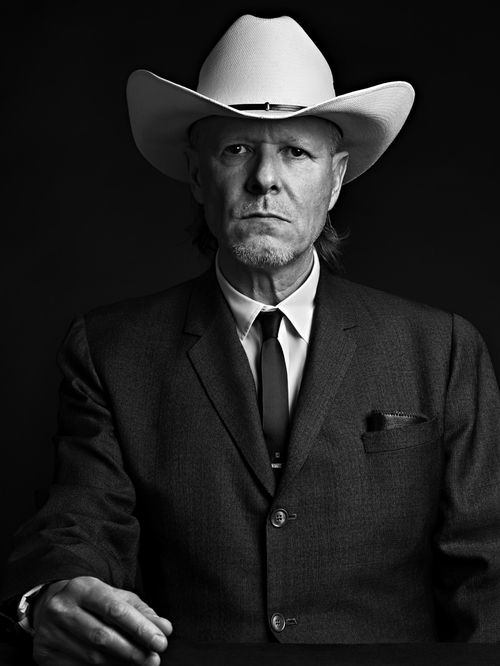
Michel Gira is the founder and frontman of the industrial-noise-Americana outfit Swans, which since 1982 has been notorious for its ostensibly transcendent sonic aggression, with a lyrical concentration (courtesy of Gira) on the caustic earthly hell of human ugliness and evil. This plunging to the cavernous depths is unaccompanied by critical comment on said ugliness and evil; to manifest the vileness suffices, with the guiding principle being catharsis: that by giving voice to the putrid stew that rages through the human heart, by immersing oneself in it and even indulging in the cruelties it conceives, evil might eventually be exorcised. Give yourself to the horror embedded in your flawed and morbid human flesh; it will swallow you, spit you out again, spiritually redeemed. Or something. Swans are revered as an Important American Band, Gira exalted as a dark shaman-prophet, like some sick and pissed-off Christ in a cowboy hat. From watching Gira perform and reading interviews with the man I’m willing to infer that his self-concept is parallel to the public estimation of him. In 2015, Gira referred to Swans as “one of the most volcanic, eruptive, virile rock outfits ever” and termed himself a “violent motherfucker” before meditating on “cosmic unity.” There is a Swans song from 1984 entitled “Raping a Slave”.
In February of this year, Larkin Grimm wrote a Facebook post stating that in 2008 Gira, then the producer of the record she was working on, raped her. She describes how she repeatedly told Gira that she did not want to have sex with him and then one night, after an evening at a steakhouse* with Gira and his friends during which the men encouraged Grimm to keep pace with their heavy drinking, she went to sleep and woke up with Gira’s penis inside her. Seeing her eyes open, he said “Uh, this doesn’t feel right,” and pulled out. After that night Gira initiated a campaign of sexual harassment:
Michael would call frequently to talk about the progress on my record and to talk dirty to me. He would tell me he loved me and that he would leave his wife for me. I would refuse to talk dirty to him and try to bring the conversation back to business. When we met, the interactions were often sexually charged and I would squirm out of them as best I could. We never had sex again although he tried over and over, making me absolutely miserable. Mastering the record with Fred Kevorkian was particularly difficult. Michael took the opportunity to kiss me in the elevator, and I complied because I really, really, really wanted to be a successful musician. He’d often say to me, “I’m gonna make you a star, Larkin. You can trust me.”
When Grimm confronted Gira about the rape, he dropped her from his label, Young God Records. She took no action against him because “as a prison abolitionist, an anarchist, and a nice person, [she] didn’t want to destroy his whole life with a rape charge.” She probably should not have worried about destroying his life, because it is doubtful any charges she filed would have been taken seriously. Her accusation prompted a slew of articles from music media outlets like Pitchfork, Spin, and NME, few of which went further than reporting the details of what people like to term “the controversy” in a nice neutral journalistic fashion, as well as an outraged Facebook denial from Gira and an even more raging Facebook teardown of Grimm penned by Gira’s wife, Jennifer Gira. Gira called Grimm’s allegations “slanderous lies,” while passing the baton along to his wife to discredit Grimm as not only a liar but also a Psycho-Bitch [read her statement here]. Days later, after consulting his lawyer & PR personnel, Gira wrote an updated statement reframing the sexual contact outlined by Grimm as a consensual unconsummated romantic event, awkward but not assaultive. “My hope is that Larkin finds peace with the demons that have been darkening her soul since long before she and I ever met” was the terrifically patronizing faux-compassionate conclusion to his revamped denial. (you know whose souls are darkened by demons, don’t you? crazy women’s souls are darkened by demons—it is historical fact. a review of the Malleus Maleficarum or any other text from the European witch hunts will proffer sufficient evidence of the susceptibility of females to demonic possession and the dangers posed to mankind by this particular female weakness.)
Grimm’s protest against rape culture was published and presumably a lot of people read it; there were clashes in the comments sections of articles pitting an encouraging number of Grimm supporters against Swans fans posting #IStandWithGira hashtags and supplying their own psychological analyses of Grimm (diagnosis: bipolar, attention hungry), and yes, there was one solid article on the Village Voice site by a female Swans fan who believed Grimm and could no longer recall warmly the time that Gira kissed her hand after a Swans show. But by mid-March there was nothing. Was consciousness raised? To an extent, among some small population, perhaps. Will that raised consciousness translate to real consequences for Michael Gira? Will his reputation suffer? A new Swans album is coming out this month (“The Glowing Man”) and has received attention from all the properly media outlets: Pitchfork, Spin, Consequence of Sound, Slant Magazine. The pre-release reviews are rhapsodic, the praise climbing to an almost religious pitch, with the album lauded as overwhelming, challenging, “all climax and chaos,” “a thing of intense and magnificent beauty” and “a rattling rollercoaster of dread.” I assume it will rank high on everyone’s 2016 best-of lists come next January.
Some of the press for the new Swans album twitches a limp finger in the direction of Larkin Grimm’s accusations with a sentence or two about the “period of controversy” the musician weathered earlier in the year and a reminder to readers that Gira “dismissed the allegations as untrue.” An unusually damning review addresses the conflict the reviewer feels for going into paroxysms over a potential rapist’s latest opus and evaluates Gira as “at minimum another in the long chain of unpleasant men who’ve created great art.” Rapist or not, he is owed our time and attention and esteem, because he is a great artist. Other articles do not deign to include reference to the Grimm’s account at all. Like women’s dignity and well-being customarily are in relation to the art men make, her rape is regarded as inconsequential.
Should Michael Gira be at all concerned about his public image, career, or life being disrupted by the rape allegations, he need only look to the enduring success of the filmmaker Woody Allen to have his anxiety assuaged. Almost 25 years ago it entered public consciousness that Woody Allen may or may not have sexually abused his seven-year-old adopted daughter, Dylan Farrow. It was a scandal at the time but the investigation was not pursued (not because there was not probable cause to press charges, but to protect the victim from a traumatic trial), and since the story came to light chronologically close to an acrimonious split between Allen and Mia Farrow – and our misogynist culture despises women as deceitful, conniving, vengeful, etc. – the case closed on the presumption that Farrow was a manipulative bitch endeavoring to punish Allen by brainwashing her child into saying her father laid hands on her. Obviously a more plausible theory, much easier to accept than the distasteful possibility that a man who had an affair with and went on to marry another of his adopted daughters (who was, to be fair, an adult by the time their tryst began, though nonetheless 35 years his junior), a man who in one of his best-loved films made much of his character dating a high-schooler (and Woody Allen characters are always…Woody Allen), who in movie after movie fixates on the erotic allure of younger women, could have molested a child. So, the scandal fizzled out, Woody Allen kept right along making movies and people kept going to see them; he got richer and more famous, more beloved, further cemented his prestige as a Hollywood Institution with every new film, while somewhere a young girl looked on as the world decided what happened to her was forgettable.

Two years ago, after Woody Allen was honored with the Cecil B. DeMille Award for lifetime achievement at the Golden Globes, a letter by Dylan Farrow, now an adult, living under a different name, was published in the New York Times. Farrow asserted that it was true: when she was a little girl Woody Allen sexually abused her, it was painful and frightening, it disrupted her childhood, it marred the years that would follow.
What’s your favorite Woody Allen movie? Before you answer, you should know: when I was seven years old, Woody Allen took me by the hand and led me into a dim, closet-like attic on the second floor of our house. He told me to lay on my stomach and play with my brother’s electric train set. Then he sexually assaulted me. He talked to me while he did it, whispering that I was a good girl, that this was our secret, promising that we’d go to Paris and I’d be a star in his movies.
The assault in the attic was not an isolated event, either, but the culmination of a steady pattern of sexually abusive behaviors by Allen:
For as long as I could remember, my father had been doing things to me that I didn’t like. I didn’t like how often he would take me away from my mom, siblings and friends to be alone with him. I didn’t like it when he would stick his thumb in my mouth. I didn’t like it when I had to get in bed with him under the sheets when he was in his underwear. I didn’t like it when he would place his head in my naked lap and breathe in and breathe out. I would hide under beds or lock myself in the bathroom to avoid these encounters, but he always found me.
After her statement was printed, Dylan Farrow was publicly derided as the frail-minded victim of her malicious mother. Her father responded in the NYT to say as much; elsewhere his friends stressed the point. Stephen King weighed in on Twitter noting he sniffed out “an element of palpable bitchery” in Farrow’s piece. Cate Blanchett and Alec Baldwin, who Farrow indicts for working with Allen, defended themselves by labelling the molestation case a “family matter”—none of their beeswax. What happens in the home stays in the home…which may just be why it is the principal site of men’s violence against women. Woody Allen for his part was unfazed, his buddy Robert Weide assured Daily Beast readers: “Woody literally pays no mind to this stuff, and he continues to work and have a happy home life.”
The director’s latest confection is Cafe Society (2016), a frothy little 1930s era rom-com starring Kristen Stewart, Blake Lively, Jesse Eisenberg, Parker Posey, and Steve Carrell. It premiered at the Cannes Film Festival to a generally warm reception and doubtless when it arrives in U.S. theaters this July all the usual Intelligent Liberal Americans who rush out for Woody Allen movies will flock to it. Woody Allen’s son, and Dylan Farrow’s brother, Ronan Farrow wrote a piece in The Hollywood Reporter criticizing the entertainment industry’s apparent preference for powerful men over victimized women and girls, reintroducing child sexual abuse to the Woody Allen discussion. He recommended the press ask harder questions in their coverage of Allen. The subsequent intensified interrogation has produced tepid results. Asked whether the idea that Allen may have molested a child gave her any pause when making her decision to work with the director, Blake Lively responded, “It’s very dangerous to factor in things you don’t know anything about. I could [only] know my experience. And my experience with Woody is he’s empowering to women.” There’s a hitch in her logic: a man who harms women, no matter how many women he harms, cannot possibly harm all women, thus there are always going to be women who have not been harmed by him who, based on their own experiences, have no reason to see him as anything but charming. Ted Bundy, for example, did not kill me. In my personal experience, he never existed, because he was executed the year I was born. Nonetheless, he did exist, and he did kill women. Not everything in this world can be judged solely by the information supplied us by our own personal experiences. Sometimes we have to look at reality as it manifests beyond our own subjectivities. Sometimes we have to listen to those who have had experiences different from our own.
Yet looking and listening are not the preferred pastimes of the patriarchy-reared populous. Turning a blind eye to men’s violence against women and girls, however, is an old favorite, so Allen has little reason to lose sleep. And he knows it: when asked by the Los Angeles Times about his adopted daughter’s essay and its potential impact on his career, the director replied, “I think it’s all silly. The whole thing — it doesn’t bother me. I don’t think about it. I work.”
Odds are we will have another Woody Allen film to look forward to next year.
Johnny Depp is a Hollywood icon of a decidedly different character than Woody Allen: he is a heartthrob, though an aging one now, slightly bloated, his cult of devoted teen-girl admirers on the wane. Nonetheless – despite the cruelties of middle age – he is adored in a way in which Woody Allen and Michael Gira are not, as a Dream Man, the object of what was once a nearly endemic romantic fascination. He also has the most mainstream cachet of the three men. Everyone knows Johnny Depp. As a consequence the accusations made by his estranged wife, actress Amber Heard, that he was verbally and physically abusive to her throughout their four-year relationship, have garnered greater attention—unlike the allegations against Gira and Allen, this is tabloid fodder. Is it possible that these, too, will evanesce quietly into the dusk of unconcern, as did the others? Juicy as the story is, it’s hard to imagine it fading out. Will this be the one to stick? Since the news is too fresh yet to know whether or not the domestic violence accusations against Johnny Depp will undo him and devastate his career and cast him from the cozy embrace of the public’s good graces, all we can do is use available evidence to make a prediction. And here is mine: Johnny Depp will emerge unscathed.
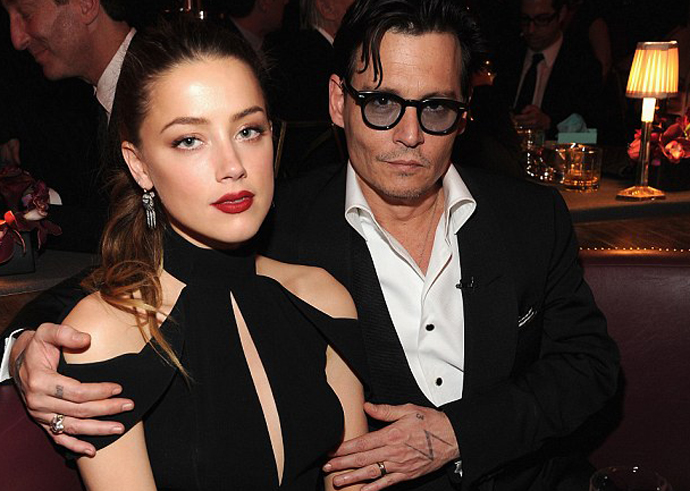
On May 27 Amber Heard was granted a temporary restraining order based on a statement she made detailing how Depp had at various points thrown a bottle of champagne, a wine glass, and a cellphone at her, pushed and shoved her, dragged her by the hair, smashed her belongings, struck her, and screamed obscenities at her. In the statement he describes Depp as paranoid, volatile, and jealous, with substance abuse problems. As evidence of his most recent attack, Heard submitted a photograph of the facial bruising she incurred from being struck by the cellphone Depp threw at her. A close friend of Heard’s, who was on the phone with her during that night and called 911, afraid that Depp would seriously harm her friend, corroborates the abuse. Amber Heard is divorcing Johnny Depp. In her petition for the restraining order, she also requested that Depp provide her with $50,000 monthly in spousal support. Because she asked for money from Depp, she is being widely accused of fabricating the abuse in order to screw Depp over. The savvy audience to the proceedings has perceived that she is a woman and being a woman it’s probable that she is a crafty selfish whore out for blood prepared to sink to the lowest treachery for a payout. Indeed, she has been the abusive one all along and is now blackmailing him, or so avers Depp’s friend, the comedian Doug Stanhope. In support of this theory another of Depp’s friends, Benecio del Toro, has been quoted observing that Heard seems “manipulative,” and that “it sounds a little bit like there’s something really twisted about that girl…but I don’t know the specifics.” Even more incriminating has been the fact that Heard is bisexual, in other words: unfaithful to the sexual dominion of the male. If there is anything worse than a twisted girl, it is a twisted lesbian. She is looking guiltier all the time! More and more like a “lying grub worm”1 “in desperate need of confinement in a psychiatric hospital”2 who, permitted to continue roaming freely about the world, will bleed poor innocent sweet and gentle Johnny Depp dry with her “band of gypsy lesbian friends”2.
To quash claims that her allegations are lies motivated by feminine avarice, Amber Heard has since revoked her request for spousal support. TMZ has helpfully explained that she is only sidelining the demand for cash now, but may resurface it “…AFTER the restraining order is handled.”
Meanwhile Depp is currently relaxing keeping a low profile waiting for the storm to settle on his “pure and beautiful” private island in the Bahamas. Sources report he “doesn’t seem too worried” and is confident his “excellent lawyer” will sort this whole bothersome mess out for him.
I predict that in the coming months Depp’s excellent, well-paid lawyer will meet her client’s expectations, Heard’s credibility will be shredded to tatters until her allegations appear absurd to everyone still watching, Depp will be vindicated as the victim of a Sinister Female, his fans forgiving him for the fatal error he made in entangling himself with such a rotten lesbian nobody. A new entry in Disney’s Pirates of the Caribbean juggernaut is due to come out next year and when it does, if the domestic violence allegations against its star Cap’n are mentioned it will be in a polite undertone. Depp will be given abundant opportunity to redeem himself. Some fans will love him more than ever, sympathetic to the trial he endured, proud to see him rise above it. Judged loathsome, possibly evil, Amber Heard will be offered fewer and fewer roles. Along with the unpalatable image she presented of Depp as a violent and controlling man, she will dissolve from the public consciousness.
Johnny Depp must be innocent because it is unthinkable the man we’ve come to know as handsome and intelligent and funny could have physically and verbally terrorized a woman, and because Amber Heard is a gold-digging psychotic lesbian intent on stealing away Depp’s private island. Woody Allen must be innocent because it is unthinkable the man who every year makes a charming witty critically acclaimed film could have sexually assaulted his adopted daughter, and because Mia Farrow is a wrathful scheming bitch who planted the hateful lie of abuse in her young and impressionable daughter’s mind with the sadistic aim of ruining Allen, who had ditched her for a younger model (another of her daughters). Michael Gira must be innocent because it is unthinkable that the Christ-like mystic genius behind Swans could have raped then harassed a woman, and because Larkin Grimm is a bipolar attention-whore dementedly obsessed with Gira, seething with ire over how he dropped her from his record label.
Men are innocent because it is unthinkable that a man could have hurt a woman, or a girl, and because women’s accounts of men’s violence against them can be discounted as the product of feminine malevolence and mental instability.
There is no clearer indication that ours is a male supremacist culture than our reflexive leap to give a man the “benefit of the doubt” when a woman accuses him of violence. In this automatic unconscious choosing of sides we express our latent mistrust of women, by default dismissing women’s accounts as more likely than not fictitious. A woman’s claims of being raped, beaten, violated by a man count for nothing; without a second thought we second-guess her, conditioned as we are to believe that it is an unfortunate inborn proclivity of the female to lie about male violence, to punish men with lies. If we did not assume that women by nature tended toward duplicity, the testimony of women victimized by violent men would be taken seriously as evidence that the violence they describe occurred. We would believe that she was not bullshitting until we were given reason to reject her story as bullshit. Now, it is enough that she is a woman accusing a man of harming her for us to presume she’s bullshitting.
If our culture did not value men over women, if we were not trained to view men as good and women as bad, to respect men, to hate women, we would believe women when they told us men hurt them.
I believe Larkin Grimm, and Dylan Farrow, and Amber Heard. I will continue believing them until it is proven to me that they are lying. That the men fail to face consequences I will not consider proof that the women are lying, because I know that the reality is that it is more common for men to get away with violence against women than it is for women to make false reports of male violence.
Because I believe Grimm, Farrow, and Heard, I cannot continue to support in any way the men they have accused. I will not purchase or rave about the new Swans album. I will not see the new Woody Allen movie. I will not reminisce back to my pre-teen affections for Johnny Depp in Cry-Baby or What’s Eating Gilbert Grape endeavoring to wish away my new picture of him as a 53-year-old man drunkenly dragging his young wife around by the hair. I am sorry he has been reduced to this but I will not try to like him anyway. Even writers who, like me, believe that Michael Gira raped Larkin Grim, or Woody Allen sexually assaulted Dylan Farrow when she was seven years old, seem to harbor a conviction that, in spite of these men’s male supremacist abuses of women and girls, they still deserve their creative careers, as if we ought not let our emotional reactions to something like rape distract us from our responsibility to appreciate art objectively. It is proposed that we can continue enjoying the output of these men in good conscience so long as we keep in place a mental asterisk reminding us that these men have done some nasty things to women and maybe aren’t such good guys. As I see it this constitutes an even more blatant sanctioning of male violence against women than simply trying to pretend the violence ever happened, because what it means is that, whatever a man does to a woman, if he is talented he still deserves attention, to be celebrated; he still has contributions to make to our culture, his art is important. Insisting on the separation of art from the artist in these cases is moral cowardice, an expression of savage apathy all the more heinous because it is unconscious, a tacit assertion of male supremacy misapprehended by a mind raised on patriarchy as the reasonable “taking the high road” moderate view: to accept that “bad men” — i.e., rapists, batterers, sexual abusers – can nonetheless be “great artists,” and as such are due space in the public sphere to present their art. Their art makes up for their actions, vile though we collectively concede those actions may be. At base what it means is that we care more about men’s art than about women’s lives in this society. It means there will be no consequences for powerful men when they harm women. That after careful consideration we’ve decided we will tolerate violence against women in exchange for new films and rock albums.
Championing the continued career success of a male artist you believe raped a woman is to condone rape. That asterisk punctuates complicity. Why is it so inconceivable to boycott a man’s work based on the contempt for women manifest in his actions? If you believe a man raped a woman, why would you fund that rapist’s livelihood? Bolster his ego? Men who abuse women, artists or not, however talented, however famous, are owed censure. They are not owed an audience for the art they create. That it seems a sufficient response to famous men’s sexual violence against women to acknowledge that those men have hurt women without condemning the men for the harm they caused or in any material way rescinding support for them forces me to reiterate what I am consistently horrified is not the world’s most obvious truth:
Men only get away with mass violence against women because we as a society allow them to.
//
* It should not be relegated to coincidence the association here between the steakhouse dinner-and-drinks outing and Gira’s assault on Grimm later that evening. Steakhouses are masculine-coded establishments which celebrate the male right to conquer, destroy, and consume “lesser” beings, e.g. animals and women.
